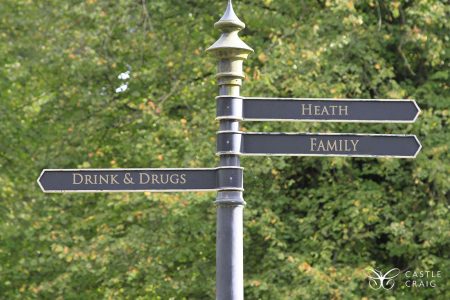There are so many awareness weeks (and days) that it’s hard to keep up with them all. I tried to figure out how many of these events there are in a year but couldn’t find a precise answer.
This site lists these events by month and I counted a total of 28 “awareness” days and weeks during the month of November — including Alcohol Awareness Week. In June this year there were 36 events including Armed Forces Day and “Wrong Trousers Day” (inspired by the Wallace and Gromit film).
Amongst this plethora of good causes, Alcohol Awareness Week stands out as one of the most important of them all.
The event is organised by Alcohol Concern, it takes place between 17th and 21st November and their theme for this year’s event was “Taking back our health and high streets….Local authorities and other organisations, from pharmacies to treatment service providers, get involved to raise awareness of alcohol issues and the impact it can have on our health and communities.”
Unfortunately Alcohol Concern don’t have any updates on their site about what actually happened at the local level but I did find an interesting story about “family group support” in Plymouth: “For parents, wives, brothers, and friends, the agony they feel as they watch someone hollowed out by drugs and alcohol, leaving them almost unrecognisable, can undoubtedly drag them into their own sea of troubles.”
However, Alcohol Concern managed to get the story into the mainstream media quite effectively and there was plenty of interesting media coverage during the week.
The most serious issue that got discussed in the media during Alcohol Awareness Week was the publication of the report about alcohol misuse among older women. The figures are startling: there is a 65% increase in the number of retired women who have developed a drink problem and a 25% decrease in the number of young people being admitted into rehab. This article says the problem of elderly alcoholism is “partly fuelled by the growth of online shopping delivery services.”
Public Health England, the policy-making arm of the NHS, published a new “toolkit” for health commissioners to “prevent and address the use of new psychoactive substances”. It’s not directly related to alcohol misuse but this advice addresses an equally serious problem: legal highs. I wasn’t able to establish if they deliberately published it during Alcohol Awareness Week or if this timing is just a coincidence. In any case, it’s clear that this is a good time to publish news about addiction issues.
Various other items of interest were published in the media during the week:
- The Independent asked “How many units should we drink every day?” What’s interesting about this story is that it’s the same old advice being trotted out (3-4 units a day for men and 2-3 units for women) but the fact that it was published during Alcohol Awareness Week made it newsworthy.
- Writing in The Huffington Post, Beth Burgess discussed an issue that many of us come across at weekends: “The UK’s Love Affair With Alcohol: Why So Many Brits Over-use Booze.” She writes: “It’s in our culture, our advertising, our rites of passage, our humour, and our traditions. In Britain, inebriation is celebrated and encouraged.”
- The Guardian published a scare story about what the Conservatives would do if they are elected at the next election: “Tories plan sobriety bracelet punishment for alcohol-related crimes. Conservative government would give judges power to use alcohol abstinence orders as alternative to prison sentence.”
- My favourite headline was in The Economist, a weekly paper that comes up with surprisingly witty content, great titles and brilliant pictures. In an article entitled “Oldies behaving badly” Joanna Lumley is quoted as saying “Don’t look like trash, don’t get drunk, don’t be sick down your front.”
If Alcohol Awareness Week is to be evaluated by the amount of national media coverage that it generated, it gets top marks from me. Alcoholism and drug addiction are such serious problems that any publicity that brings the issue into the public’s awareness is beneficial.


